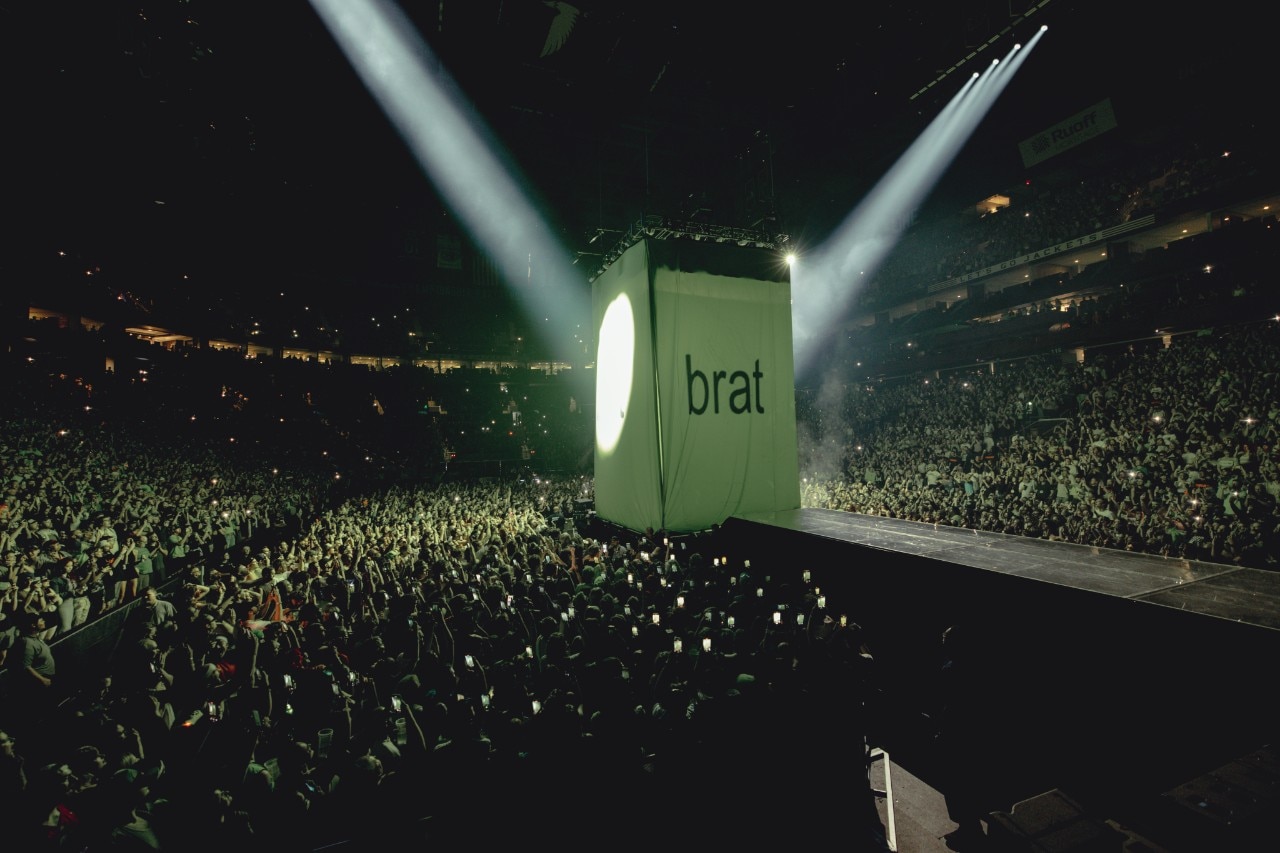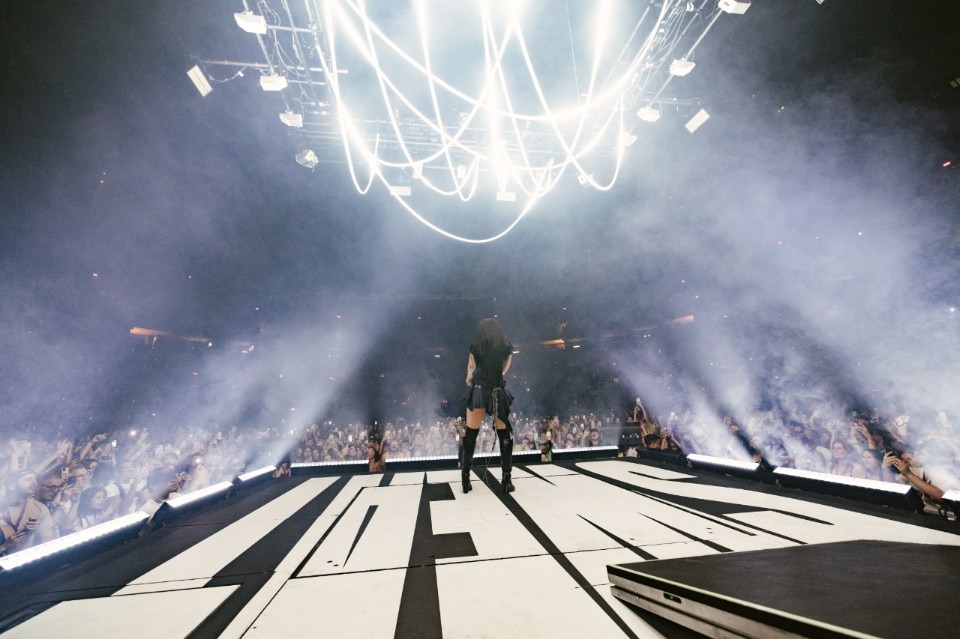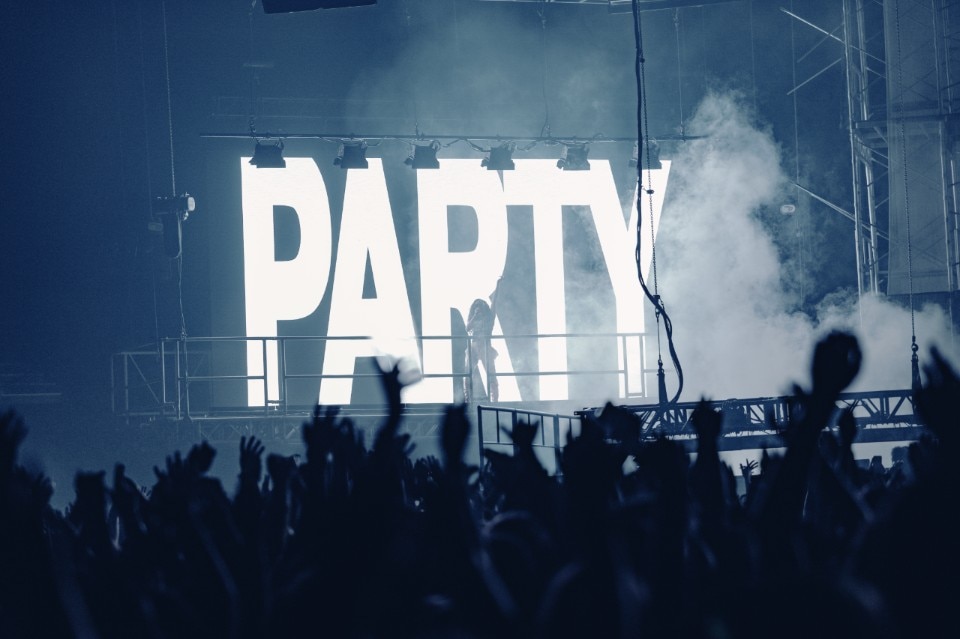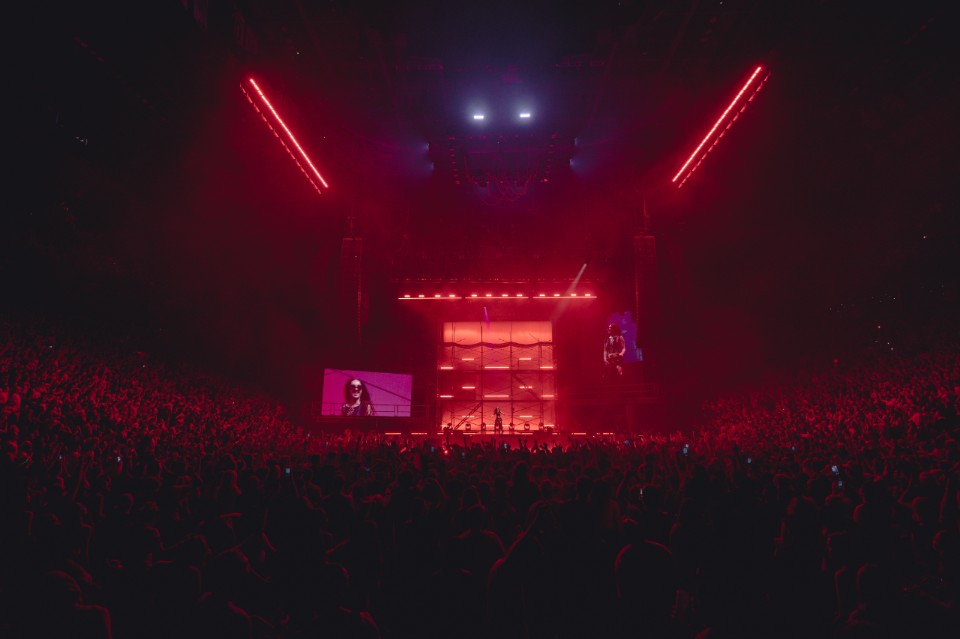After collaborating on the tracks "1999" and "2099," Charli XCX and Troye Sivan seemed to have gone their separate ways. This year, they reunited for SWEAT, a tour that visited 22 cities and attracted over 300,000 spectators, further solidifying their status as two of the most influential pop stars of the moment. The tour stems from an ambitious question: how do you translate two musical phenomena that have left an indelible mark on the visual landscape, influencing trends, generating new aesthetics, creating memes, and sparking heated online debates, into a live show?
The challenge was undertaken by the COUR Design team, specialists in designing concerts, live events, brand experiences, and immersive installations, who managed the set design, lighting, and production of the tour. Jonny Kingsbury, stage designer for COUR Design, stated: "At first, we were worried it wouldn’t work as one unified show, but when we saw the final result on stage, we realized we had created something special."
We really wanted the audience to feel like it was a party and that you were inside of a club with Charli and Troye
Jonny Kingsbury, COUR Design
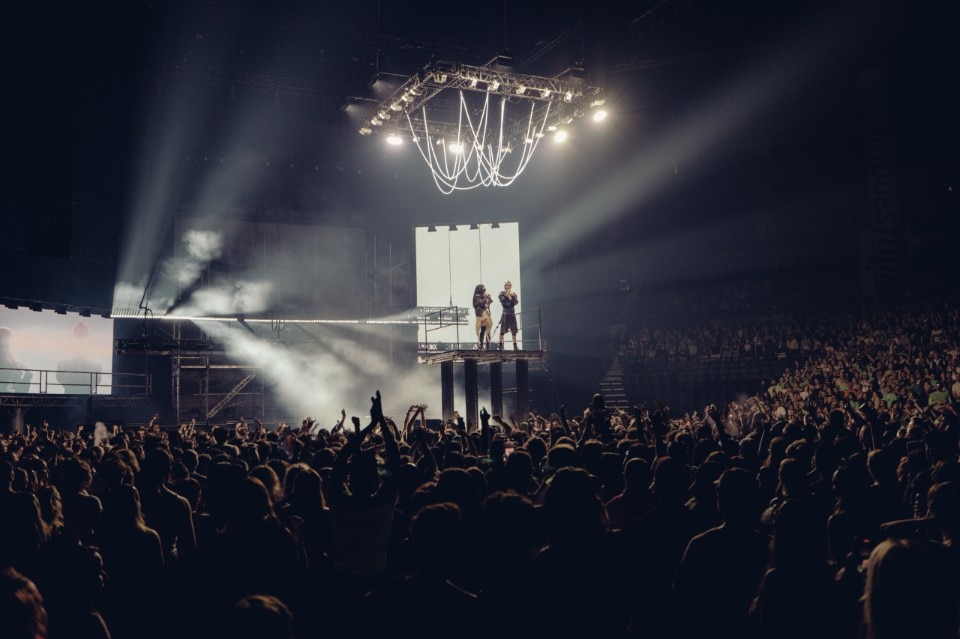
Don't call it just a "concert"
Charli wanted her typical "BRAT" style on stage—bold and futuristic, blending pop, electronic music, and club culture with a provocative visual aesthetic. For SWEAT, she envisioned a show where the IMAG screens would transform into something resembling billboards.
Troye, on the other hand, was looking for a more intimate and sophisticated atmosphere, staying true to his pop style, which is marked by nostalgic tones.
I really leaned heavily on using automation to transform the stage between artists. Taller, bigger, and more colour for Troye and smaller more intimate, white lighting with lots of strobing for Charli
Jonny Kingsbury, COUR Design
A key element of the design was a dynamic and modular stage, featuring movable trusses that, when lowered, created a more intimate atmosphere, while raising them expanded the visual impact, altering the configuration of the set throughout the performance. This was complemented by exposed scaffolding, LED towers, a kabuki drop, and two-tiered walkways.
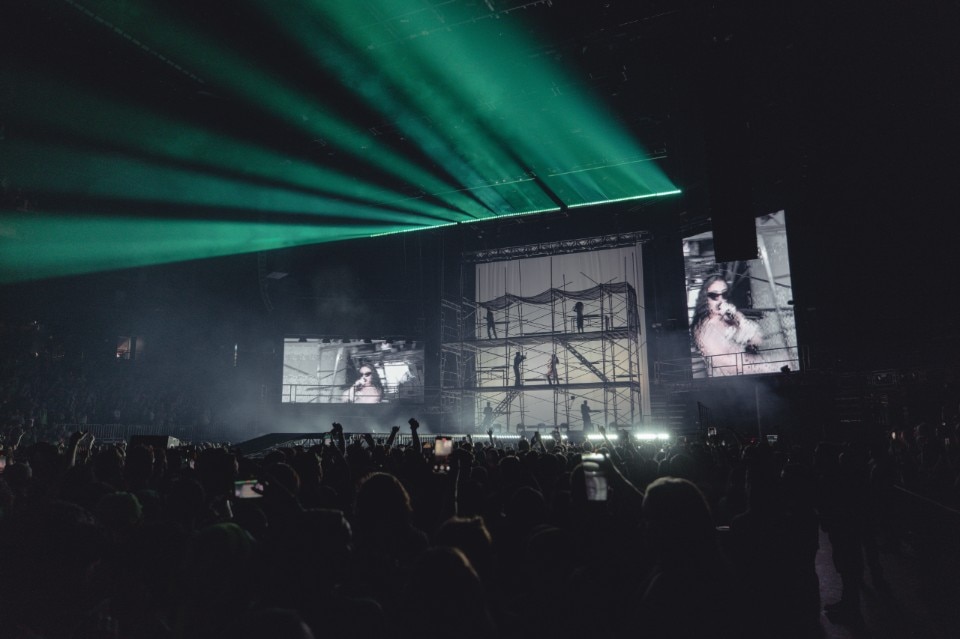
A brutal stage design
"In a typical pop concert, everything is made to look as neat as possible. The equipment on stage, the cables, the trusses are hidden to create a dreamlike, polished, and perfect appearance."
In this case, nothing was hidden.
The technical components and structural elements are intentionally left exposed, highlighted, and well-lit, giving the stage a raw and bold appearance. A choice that Kingsbury described as "a bit bratty," emphasizing how it not only breaks with the tradition of the perfect stage but also integrates the scenic elements into the visual narrative, adding a sense of authenticity and non-conformity to the scene.
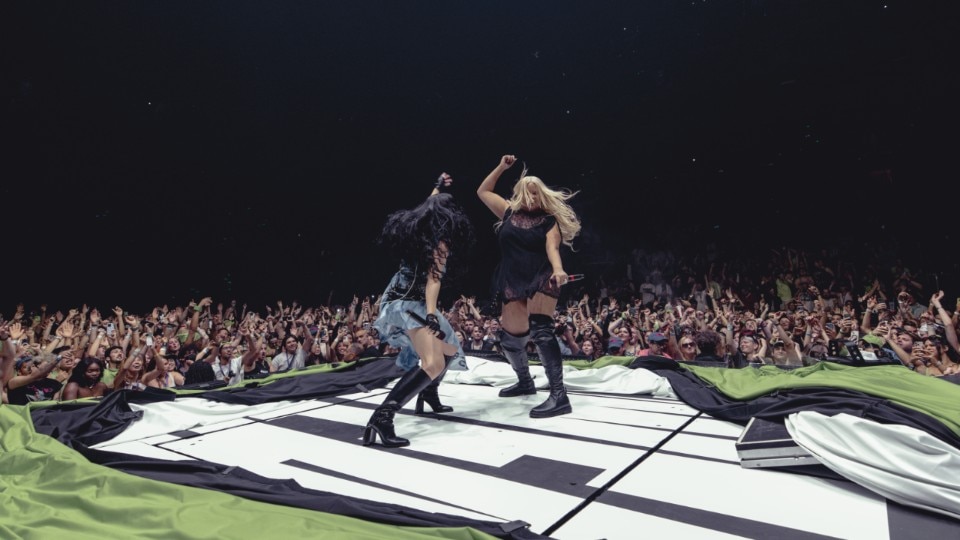
A cinematic look
The (IMAG) Image Magnification technique, which projects enlarged images of the artists onto large screens, offered new perspectives on the performance, enriching the narrative with live footage and unusual angles.
For the SWEAT tour we really wanted it to be a cinematic experience for the audience, so we incorporated steadi-cams and cinematic frame rates on cameras, specific choreography moments, and colour grading on the cameras
This technique, commonly used in live performances, projects enlarged images of the artists onto large screens, allowing even the audience furthest from the stage to capture details otherwise invisible, such as facial expressions or choreographed movements. "Usually, these are images captured and instantly reproduced at 60 frames per second," explain the designers, "with a style similar to television broadcasting, but also reminiscent of the dynamism of live sports broadcasts."
"For the SWEAT tour we really wanted it to be a cinematic experience for the audience, so we incorporated steadi-cams and cinematic frame rates on cameras, specific choreography moments, and colour grading on the cameras."

Franke presents “The House of Well-Living” at Fuorisalone
With a multi-sensory installation, Franke will welcome visitors to its flagship store during Milan Design Week and present the year's new products.

